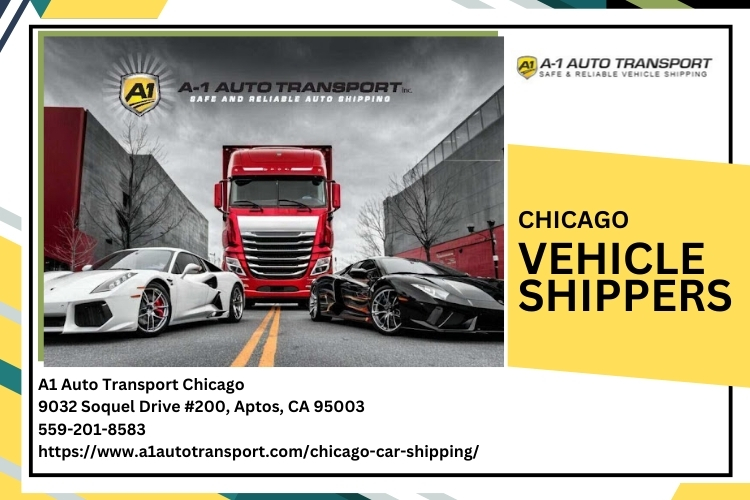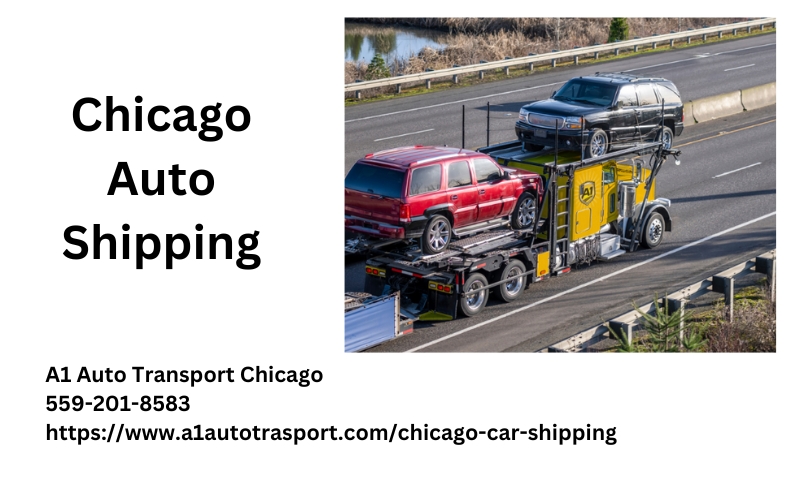Introduction
Navigating through the vibrant streets of Chicago can be as thrilling as it is challenging. As one of the largest cities in the United States, with its bustling streets and diverse neighborhoods, understanding how to transport your vehicle efficiently is crucial. Whether you're relocating for a new job, moving into a new neighborhood, or simply need to ship your car for a cross-country journey, this guide will cover everything you need to know about Chicago auto transport, Chicago car shipping, Chicago vehicle shipping, and Chicago vehicle transport.
Understanding Chicago Auto Transport
What is Auto Transport?
Auto transport refers to the movement of vehicles from one location to another. This can involve various methods such as open transport, enclosed transport, and even rail transportation. In urban settings like Chicago, where traffic congestion is common, utilizing professional services can save time and reduce stress.
Why Choose Professional Services?
Choosing professional auto transport services ensures that your vehicle is handled by experts who understand the logistics involved. They have access to specialized equipment and techniques that minimize the risk of damage during transit.
Types of Auto Transport Services Available in Chicago
Open Transport- This is the most common method used for transporting vehicles. Cars are loaded onto an open trailer.
- A more secure option for high-value vehicles or those prone to damage.
- Convenience at its best; your vehicle is picked up and delivered right at your doorstep.
- A cost-effective alternative where you drop off your vehicle at a designated terminal.
Choosing the Right Service
When it comes to selecting an auto transport service in Chicago, consider factors such as:
- Vehicle type Shipping distance Budget constraints Timeframe for delivery
Navigating Chicago’s Streets: The Ultimate Guide to Auto Transport in the Windy City
Transporting your vehicle around such an extensive city requires careful planning. Here’s how you can navigate through these challenges effectively.
Understanding Chicago's Traffic Patterns
Peak Hours: Traffic congestion peaks during morning rush hour (7 AM - 9 AM) and evening rush hour (4 PM - 6 PM). Scheduling pickups outside these hours can save both time and frustration.
Construction Zones: Always check for ongoing construction projects which may affect traffic flow.
Weather Conditions: Be mindful of Chicago's unpredictable weather; snowstorms or heavy rain can delay transportation schedules.
Essential Documents Required for Auto Transport
Before handing over your vehicle for shipping, ensure you have:
- Vehicle title Registration documents Insurance papers Driver's license
This documentation not only facilitates smooth processing but also protects you against potential liabilities during transit.
Factors Affecting Chicago Car Shipping Costs
Distance Traveled
The farther your destination, the higher the cost generally will be. For local shipments within Chicago, expect lower rates compared to cross-country deliveries.
Vehicle Type and Size
Larger vehicles like SUVs or trucks typically incur higher shipping costs due to their size and weight.
Seasonality
Shipping rates can fluctuate based on demand; peak seasons such as summer see increased pricing due to higher volumes of shipments.
Additional Fees
Consider potential additional costs such as:
- Fuel surcharges Insurance fees Terminal handling charges
Choosing Reliable Chicago Vehicle Shipping Companies
Researching Potential Companies
Start by checking online reviews, ratings on platforms like Yelp or Google Reviews, and asking friends or family for recommendations.
Verifying Credentials
Ensure that any company you're considering has proper licensing and insurance coverage. The Federal Motor Carrier Safety Administration (FMCSA) provides valuable information regarding registered carriers.
Comparing Quotes
Don’t settle on the first quote you receive; instead, get multiple estimates from different companies to gauge market rates effectively.
Safety Measures During Vehicle Transport
Pre-shipping Inspection
Take photos of your vehicle before it gets loaded onto a trailer. This documentation will be crucial should any damages occur en route.
Tracking Your Shipment
Many modern auto transport companies offer GPS tracking features that allow you to follow your vehicle’s journey in real-time.
Understanding Delivery Methods in Chicago Vehicle Transport
Terminal-to-Terminal Delivery Explained
This cost-effective option often requires customers to drop off their vehicles at designated terminals rather than having them picked up at home.
Door-to-Door Delivery Explained
As previously mentioned, this service entails direct pick-up from your location and delivery to your desired address—ideal for those seeking convenience over cost savings.

Common Myths About Auto Transport in Chicago
Myth: It’s cheaper to drive my car myself.- Fact: Considering fuel costs, lodging, food expenses during travel, plus wear-and-tear on your vehicle can make professional shipping more economical.
- Fact: Not all companies include full coverage; always inquire about insurance policies before proceeding.
- Fact: Quality matters! Sometimes paying slightly more guarantees a better experience with less risk involved.
Frequently Asked Questions (FAQs)
Q1: How long does it take for my car to be shipped?

Q2: Can I pack personal items in my vehicle during shipping?
A2: Most auto transport companies advise against packing personal items due to liability issues since they may not be covered by insurance during transit.
Q3: Is there a difference between enclosed and open transport?
A3: Yes! Enclosed transport provides added protection from elements but usually comes at a premium price compared to open trailers that expose vehicles during transit.
Q4: What happens if my car gets damaged during shipping?
A4: If documented properly before shipping with thorough inspection photos taken beforehand, most reputable companies will handle claims efficiently under their insurance terms.
Q5: Are there specific times when I cannot schedule pickups?
A5: While most companies operate year-round; holidays may lead them being closed or affected by limited schedules—always confirm availability ahead of time!
Q6: Do all carriers provide tracking services?
A6: Not every carrier offers this feature—check beforehand if real-time tracking is crucial for peace-of-mind throughout transit!
Conclusion
Navigating through the complexities surrounding auto transport in a sprawling metropolis like Chicago doesn’t have to be overwhelming with proper planning and knowledge about available options! From understanding various types of services offered down through managing expectations regarding timing & cost—it’s essential work together alongside trusted professionals equipped with expertise tailored specifically towards handling local conditions Chicago auto transport unique unto “the windy city.” Remember that whether you opt exclusively utilize door-to-door convenience versus terminal-to-terminal savings—the ultimate goal remains ensuring safe arrival while keeping budget constraints firmly intact! So buckle up because now that you've got this ultimate guide handy—you're well on your way toward securing smooth sailing regarding all things related towards “Navigating Chicago’s Streets: The Ultimate Guide To Auto Transport In The Windy City!”
Contact Us
A1 Auto Transport Chicago
Phone: 559-201-8583